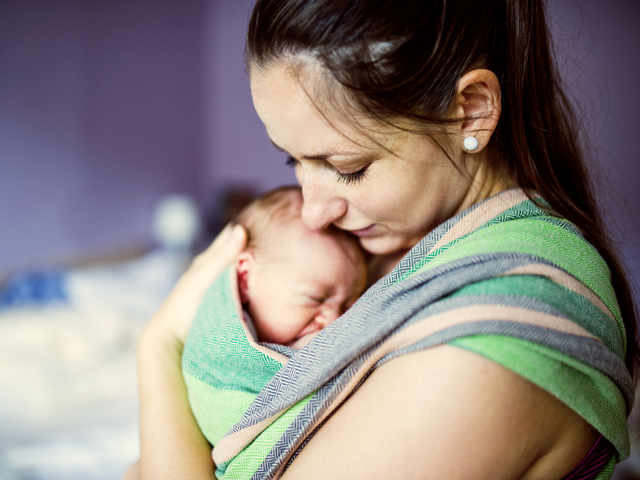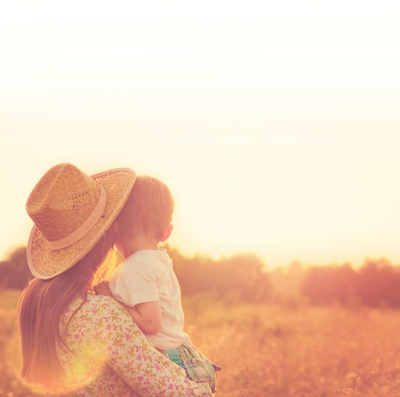Arabella Gibson Gidget Foundation Australia Interview

10 Top Tips For Getting Through This Time
In response to consistently escalating concerns about the emotional impact of COVID-19 on expectant and new parents, Gidget Foundation Australia has moved all support services to telehealth and developed a new range of online resources. These measures will ensure that people requiring these services are able to access them quickly, easily, and free-of-charge.
While the community is isolating, Gidget Foundation Australia is staying more connected than ever. On Monday 16 March, all face-to-face support services were moved to telehealth. That means that all pre-booked face-to-face psychology appointments were carried out via video and/or phone. This is how the Foundation will continue to operate support services until it is safe to return to usual modes of program delivery.
Since the COVID-19 pandemic started, Gidget Foundation Australia services have been experiencing increased demand from new and expectant parents who need support now more than ever. For example, visits to the Foundation's website have increased by 50% compared with the same time period last year (Jan to March). The Foundation attributes this to anxious parents who are seeking information and emotional support in this unprecedented global health crisis. As a result, a microsite was created to centralise all of the Foundation's COVID- 19 resources, including: new fact sheets, relevant links and access to its free telehealth service: https://gidgetfoundation.org.au/get-support/covid-19-support/
Gidget Foundation Australia Program Manager, Jenn Duncombe, an epidemiologist who has worked on outbreaks throughout the world, explained: "This is a very challenging time for Australians. We have experienced outbreaks in the past, such as H1N1 (Swine Flu) in 2009: however, we have never had our lives change so drastically. In order to reduce the community transmission of COVID-19, we have been asked to stay at home.
"This is very difficult to do in a society like Australia, where we usually interact with people on a daily basis and we can go to the beach and the park whenever we like. These changes to our lives cause us stress.
Furthermore, the uncertainties that come with COVID-19 – jobs, money, health – exacerbate our anxiety. This situation is particularly distressing for those who are already isolated and vulnerable, including expectant and new parents," Duncombe said. Gidget Foundation Australia CEO, Arabella Gibson, said that the Foundation is working tirelessly to ensure that parents in need are able to access support during the pandemic, and beyond.
"Moving all of our support services to telehealth means that we can help more new and expectant parents in need, by offering free psychological support at a convenient time from the safety of people's homes. Moreover, our new microsite provides reliable, accurate and up-to-date information, as well as links to resources and support services.
"Never has there been a more important time for us all to come together and rally around those who need our care, kindness and compassion the most," Gibson added.
Gidget Foundation Australia Clinical Team Manager and Psychologist, Christine Barnes, said: "It is normal that when we face uncertainty with lots of change, we can experience a range of thoughts, feelings and physical sensations that might be uncomfortable. Accessing accurate information and appropriate support is essential to lower the amount of distress you may be feeling," Barnes said.
There are a range of evidence-based ways that new and expectant parents can reduce the emotional impacts of COVID-19, including:
o Stay connected to family and friends using alternate contact methods such as phone and video calls.
o Minimise exposure to news and social media, limit content to reputable sources.
o Keep routine in each day as much as possible and make time for something enjoyable at home each day.
o Practice stretching, breathing and mindfulness exercises.
o Review bedtime rituals and limit screen time in the hour before bed.
o Do something for others; acts of kindness are beneficial to both parties.
o Reach out for help and support.
o Contact your GP or other health professional to discuss any emotional wellbeing issues and concerns.
Interview with Arabella Gibson, Gidget Foundation Australia CEO
Question: Can you tell us about Gidget Foundation Australia?
Arabella Gibson: Gidget is a really special and unique organisation – we look after people when they are at their most vulnerable. Pregnancy and the birth of a new little bub is meant to be a time of happiness and joy and, whilst it can be all those things, it can also be hugely isolating and lonely. A mother and also a father's identity shifts; they are no longer responsible for themselves alone, and sometimes the many feelings associated with this as well as some other factors including hormones and stresses can lead people into perinatal depression and anxiety.
Gidget Foundation Australia began 19 years ago through a great tragedy. A beautiful mum called Louise, whose nickname was Gidget, sadly took her own life whilst suffering from unrecognised postnatal depression. She was a wonderful mum – she adored her baby girl and had a really happy marriage – but she was struggling. Gidget's family and bestest girlfriends came together after she passed away and decided they wanted to drive awareness and education and help people understand about this illness, and that you could – with the right treatment – recover and go on to live a happy life. They didn't want what had happened to their Gidget to happen to anyone else again.
Now, all these years later, we have four evidence-based treatment programs offering a range of support from face to face psychological through our 11 Gidget House's, our group therapy program called Gidget Village, our Emotional Wellbeing Screening in hospitals and of course, our telehealth support program, Start Talking.
Question: Are you able to share more information about the telehealth support and resources you've developed for parents surrounding COVID-19?
Arabella Gibson: We moved all of our programs into Telehealth on 16 March and have for over two weeks now been operating remotely. I'm so pleased that we haven't missed even one face to face appointment –they were all moved to Telehealth within 48 hours! It was a massive job and our tiny Admin team worked so hard – but when the going gets tough, the tough get going! We are genuinely passionate about supporting pregnant and new parents so in that regard it came naturally I think.
We have also developed a COVID-19 online resource toolkit that gives the latest advice, tips sheets for survival, how to talk to children about it and there's more to come.
To access the counselling program, all you need is a Mental Health Plan (which you can get from your GP) and call us on 1300 851 758. From there, there are a few forms but once set up, we provide up to ten FREE sessions with a perinatal mental health specialist. We are the largest independent employer of perinatal psychologists and social workers in Australia so I can honestly say that we have some of the best in the country supporting parents in need.
 Question: How has the COVID-19 crisis affected a lot of expecting and new parents?
Question: How has the COVID-19 crisis affected a lot of expecting and new parents?
Arabella Gibson: I firmly believe that COVID-19 is a tremendously scary and worrying time for new and expecting parents. I often wonder to myself how many may in fact end up with PTSD if they didn't have our support or if they don't develop their own 'online or virtual villages'. We are certainly seeing a marked increase in information seeking and request for resources and treatment services that demonstrates just how anxious this cohort of people are.
Question: What advice do you have for first time parents who are feeling very alone, due to having no support or visitors, when bringing home a newborn during the COVID-19 crisis?
Arabella Gibson: Stay as connected as you can – do a daily Facetime call with key people like grandparents, siblings and best friends. Schedule those calls at times when it works for you but try to be flexible enough. Maybe other close family might enjoy watching activities virtually such as bath time. Hand-write a diary – it will get you off the screens and give you time to reflect. You'll look back on it one day in absolute wonder that you made it through this! It will help you process what you're feeling too. Try and use some helpful apps like HeadSpace to give yourself some time to restore and regenerate. And don't kid yourself that it's easy – it's not – so be gentle with yourself and have realistic expectations. Focus on what really matters. Finally I would say, bugger the world – enjoy the little bubble you're in and try and look at it this time of togetherness as a little family as a kind-of silver lining before the busy world gets going again.
Question: How can expecting mothers overcome the daily changes in information, appointments and hospital information associated with the COVID-19 crisis?
Arabella Gibson: Try to simplify things by only watching the news once a day. Minimise your use of social media. And set yourself one hour a day of reviewing any specific websites or emails so you don't become too obsessed with 'what's next!'. Talk to your partner – this is my number one tip! A problem shared, is a problem halved.
Question: What can soon-to-birth mothers do to feel safer during the COVID-19 crisis?
Arabella Gibson: Trust your doctor or mid-wife. They want you to feel safe and will do all they can to support you. Inquire about online learning/classes that the hospital may offer. Speak up if you feel concerned or anxious. Ask questions if you want answers – Don't be afraid of asking. And book into the Gidget Foundation before the stresses become too heavy for you to manage yourself.
Question: Can you share your top tips for getting through the COVID-19 crisis?
Arabella Gibson: See them here: https://gidgetfoundation.org.au/wp-content/uploads/2020/03/GFA-Fact-Sheet-COVID-19-Coping-with-Anxiety-UPDATE.pdf
Question: Overall, what advice do you have for expecting and new parents during this time?
Arabella Gibson: Hang in there. You are brave and strong and courageous. The only thing your bub needs is you and your little family. You will be a fantastic parent and no one is perfect. One day you will look back and be mightily proud of yourself. Whatever you are feeling is real, but this worrying time will pass. Tap into your strengths and do activities that feel good. Be creative.
Question: How can Australians support Gidget Foundation Australia?
Arabella Gibson: It costs $1,000 for us to support a family for a year. We've had to cancel two of our major fundraisers already this year so times are very tough for our charity. We would dearly love donations to help us support more people. You can donate online at gidgetfoundation.org.au or by calling 1300 851 758.
Interview by Brooke Hunter
MORE



